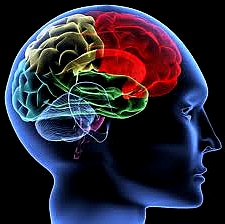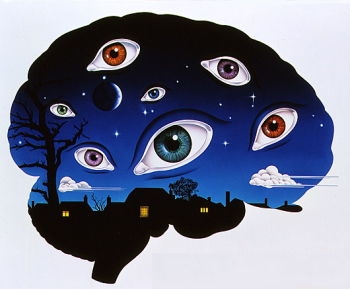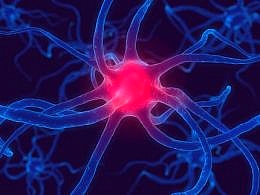Role of Dreams in Dealing with Painful Memories
Dreaming has always played a role in helping us deal with problems and bad memories. The old adage - 'Just Sleep on It' is familiar to all of us in terms of helping us to resolves problems. But what role does dreaming have in helping us erase bad memories and how can we deal with recurring nightmares that don't go away but get worse. Is dream analysis worthwhile? Should we dream more often and remember our dreams? This article reviews current research on dreams and memories.
Research studies using scans of brain function have shown how the brain deals with the memory of traumatic or unpleasant events during sleep. An MRI scanner was used to trace the blood flowing to various parts of the brain which was a sign of which parts of the brain were the most active.




A team from the University of California showed a series of images designed to trigger emotional responses to a two groups of volunteers.
One group was then allowed to sleep for several hours, while the other group was kept awake The researchers then scanned the brains of the
two groups several hours later when they were shown the images again.
The volunteers who were allowed to sleep showed less brain
activity in the parts of the brain that deals with emotion than the group who were kept awake. Also the parts of the brain known to be
responsible for rational thought processing showed more activity in the group that slept.
The group who did not sleep showed
heightened emotional responses to seeing the pictures again.
The scientists showed that the level of certain chemicals in the
brain changed during REM (Rapid Eye Movement) sleep and this appeared to explain how the body processed the memory. During REM sleep the
level of norepinephrine was low and this appeared to assist in the processing of emotional experiences.
When people wake
up the next day after dreaming, they fee less concerned about the experiences and their emotional memories have less effects on them. They
feel much better and that they can cope.
Persistent Memories and Nightmares
If memories have not
been processed adequately, or perhaps because our brains are unable to deal with them properly, bad memories may persist and cause repeated
nightmares.
Many people develop recurrent nightmares usually triggered by an event or trauma in their lives. The nightmare
occur over and over again and can cause distress and long term problems. People can be taught to alter their nightmares and dreams by
effectively re-writing or re-scripting the distressing parts into more positive outcomes. With sufficient rehearsals while they are awake and the use of selected transition points the suffers can learn to change their nightmares into less frightening dreams that fade from memory.
The method is somewhat controversial. Many people believe dreams as therapeutic in helping to resolve conflicts in your life. Some are concerned about the consequences of altering dreams and the natural processes. To re-script dreams, people are taught to write down their dream while awake, to identify break points and to develop alternative story lines that lead to better and less frightening outcomes. They then learn the altered scripts and the break points so that they can intervene when they are dreaming and change the outcome of their nightmares. Computer games are constantly doing this - with the player having the capacity to change the story line.
Recent research has shown that re-scripting dreams can be very successful in helping people to cope with recurrent nightmares A 2008 review in the Journal of Clinical Sleep Medicine has that this method has now become the preferred method of treating people that suffer from recurrent nightmares. The methods have also been shown to help with sleeping disorders and mental distress problems. These methods have helped Children deal with Nightmares essentially by convincing them that they have the power to change bad dreams to a good dreams using similar methods.